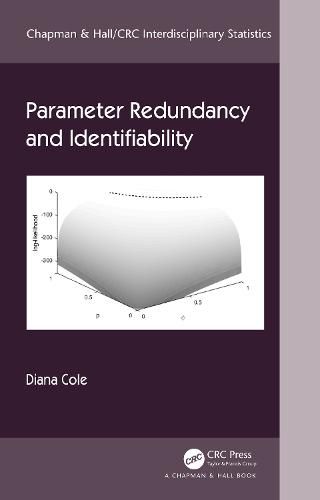Readings Newsletter
Become a Readings Member to make your shopping experience even easier.
Sign in or sign up for free!
You’re not far away from qualifying for FREE standard shipping within Australia
You’ve qualified for FREE standard shipping within Australia
The cart is loading…






Statistical and mathematical models are defined by parameters that describe different characteristics of those models. Ideally it would be possible to find parameter estimates for every parameter in that model, but, in some cases, this is not possible. For example, two parameters that only ever appear in the model as a product could not be estimated individually; only the product can be estimated. Such a model is said to be parameter redundant, or the parameters are described as non-identifiable. This book explains why parameter redundancy and non-identifiability is a problem and the different methods that can be used for detection, including in a Bayesian context.
Key features of this book:
Detailed discussion of the problems caused by parameter redundancy and non-identifiability
Explanation of the different general methods for detecting parameter redundancy and non-identifiability, including symbolic algebra and numerical methods
Chapter on Bayesian identifiability
Throughout illustrative examples are used to clearly demonstrate each problem and method. Maple and R code are available for these examples
More in-depth focus on the areas of discrete and continuous state-space models and ecological statistics, including methods that have been specifically developed for each of these areas
This book is designed to make parameter redundancy and non-identifiability accessible and understandable to a wide audience from masters and PhD students to researchers, from mathematicians and statisticians to practitioners using mathematical or statistical models.
$9.00 standard shipping within Australia
FREE standard shipping within Australia for orders over $100.00
Express & International shipping calculated at checkout
Statistical and mathematical models are defined by parameters that describe different characteristics of those models. Ideally it would be possible to find parameter estimates for every parameter in that model, but, in some cases, this is not possible. For example, two parameters that only ever appear in the model as a product could not be estimated individually; only the product can be estimated. Such a model is said to be parameter redundant, or the parameters are described as non-identifiable. This book explains why parameter redundancy and non-identifiability is a problem and the different methods that can be used for detection, including in a Bayesian context.
Key features of this book:
Detailed discussion of the problems caused by parameter redundancy and non-identifiability
Explanation of the different general methods for detecting parameter redundancy and non-identifiability, including symbolic algebra and numerical methods
Chapter on Bayesian identifiability
Throughout illustrative examples are used to clearly demonstrate each problem and method. Maple and R code are available for these examples
More in-depth focus on the areas of discrete and continuous state-space models and ecological statistics, including methods that have been specifically developed for each of these areas
This book is designed to make parameter redundancy and non-identifiability accessible and understandable to a wide audience from masters and PhD students to researchers, from mathematicians and statisticians to practitioners using mathematical or statistical models.